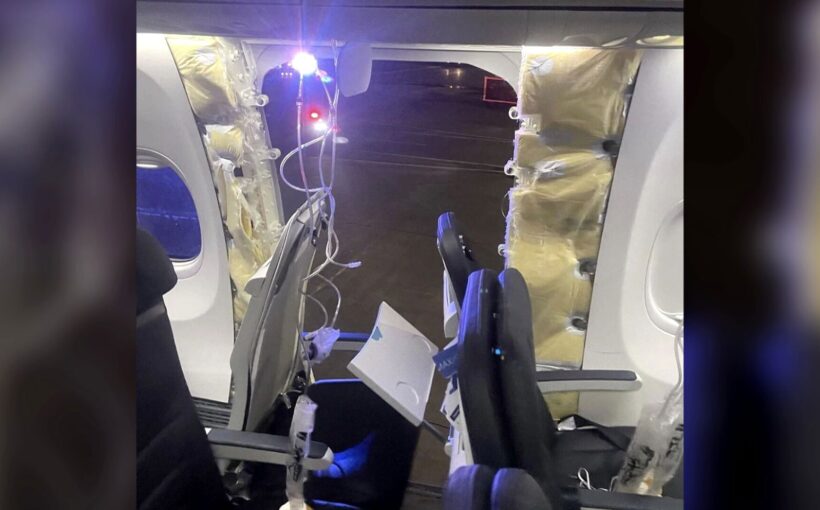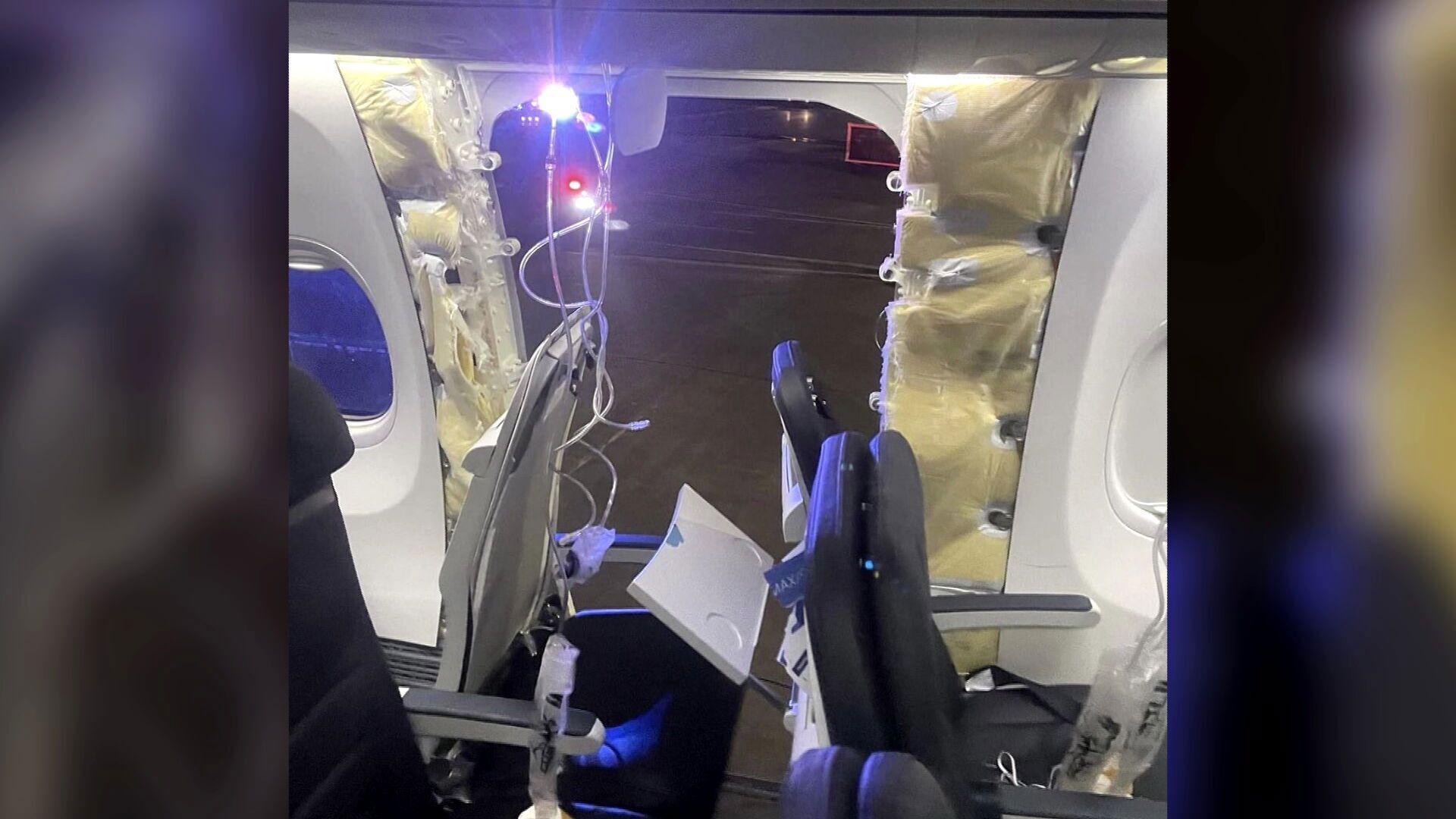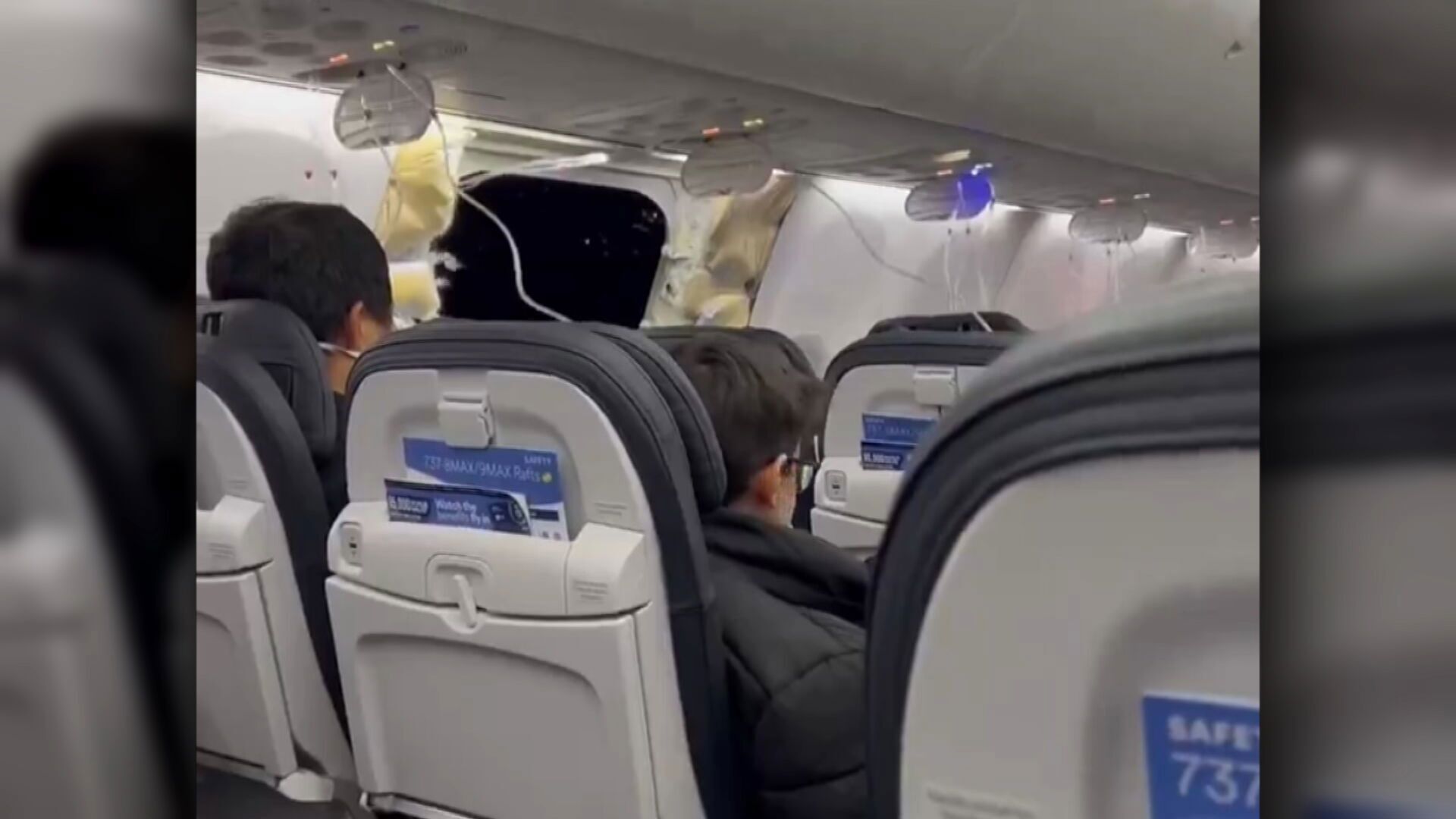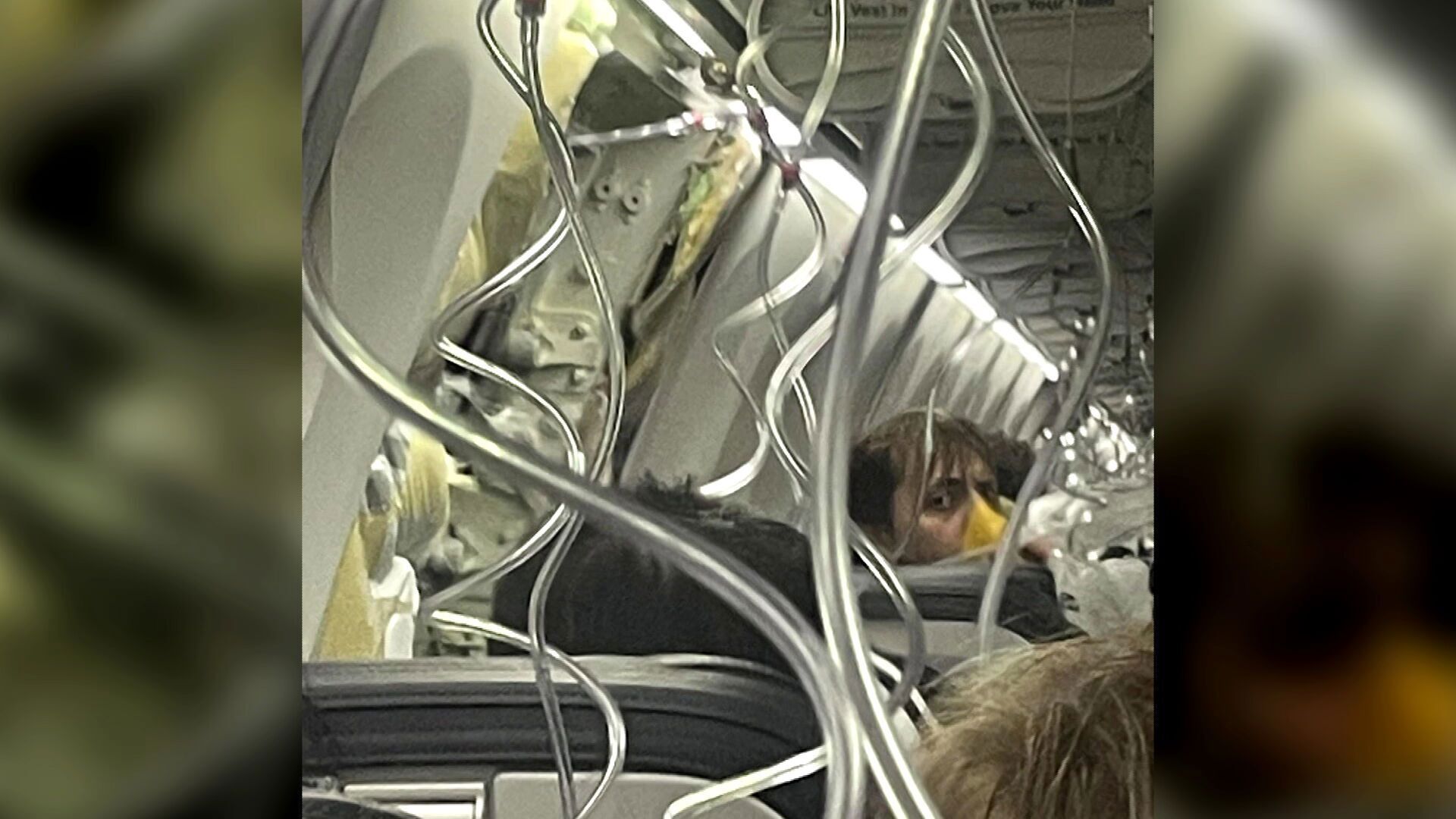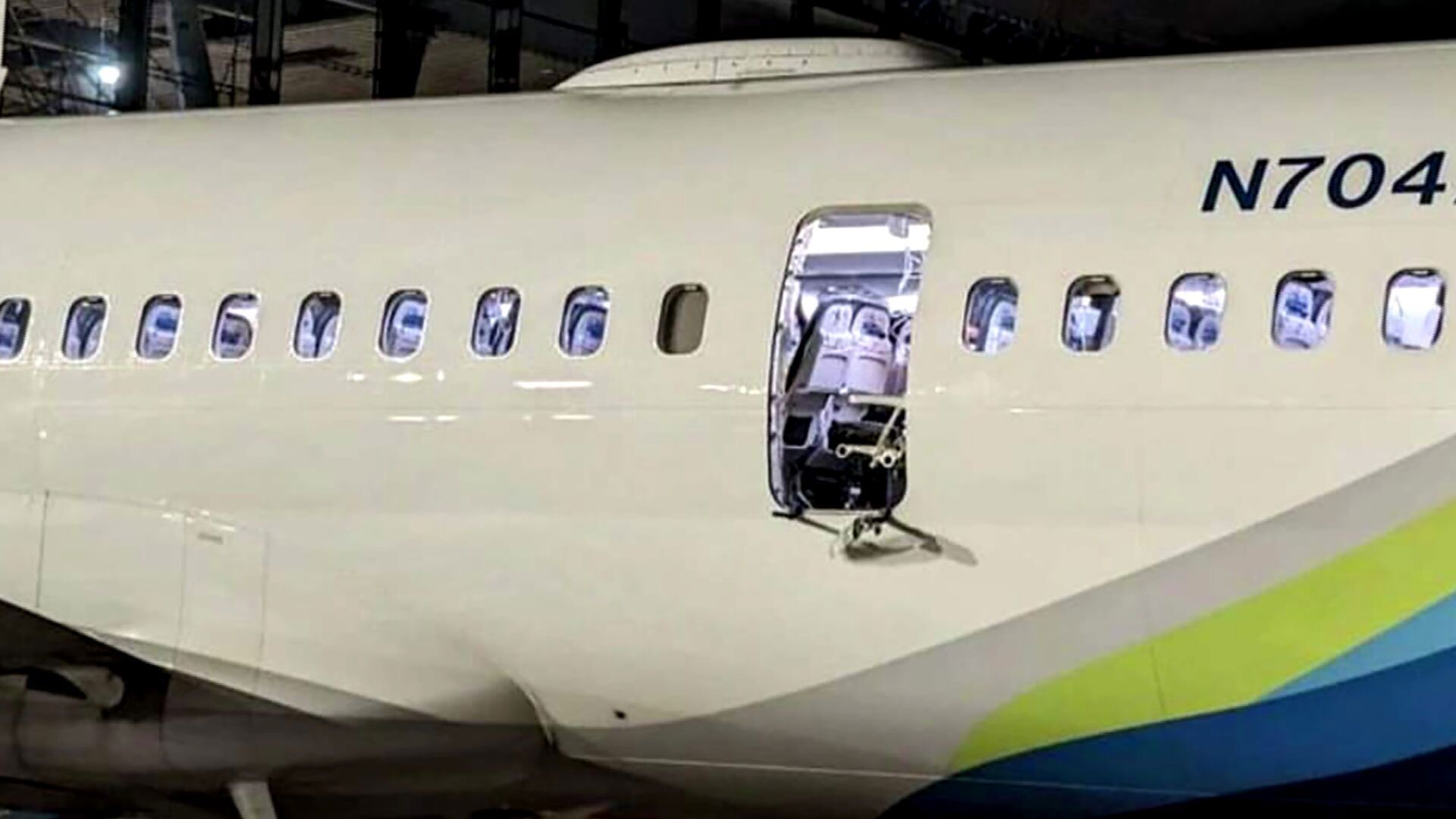Alaska Airlines has grounded all of its Boeing 737-9 aircraft after a window and piece of fuselage on one such plane blew out in midair and forced an emergency landing in Portland, Oregon.
The incident occurred shortly after takeoff and the gaping hole caused the cabin to depressurise. Flight data showed the plane climbed to 16,000 feet (4800 metres) before returning to Portland International Airport. The airline said the plane landed safely with 174 passengers and six crew members.
Photos and videos purportedly from on board show a gaping hole in the side of the plane next to passenger seats, and oxygen masks hanging from the ceiling.
READ MORE: Famous men and disquieting details revealed in third batch of Epstein documents
"It was really abrupt. Just got to altitude, and the window/wall just popped off and didn't notice it until the oxygen masks came off," passenger Kyle Rinker told CNN.
Another passenger, Evan Smith, told KPTV there was "a really loud bang towards the rear of the plane and a whoosh noise and all of the masks dropped".
"Following tonight's event on Flight 1282, we have decided to take the precautionary step of temporarily grounding our fleet of 65 Boeing 737-9 aircraft," Alaska Airlines CEO Ben Minicucci said in a statement.
"My heart goes out to those who were on this flight – I am so sorry for what you experienced."
Each of the aircraft will be returned to service after full maintenance and safety inspections, which Minicucci said the airline anticipated completing within days.
"We are working with Boeing and regulators to understand what occurred tonight, and will share updates as more information is available," he said.
The airline provided no immediate information about injuries. However, KPTV reported that according to the Port of Portland, the fire department responded and treated minor injuries at the scene. One person was taken for more treatment but wasn't seriously hurt.
The plane was diverted about six minutes after taking off at 5.07pm, according to flight tracking data from the FlightAware website. It landed at 5.26pm. The pilot told Portland air traffic controllers the plane had an emergency, was depressurised and needed to return to the airport, according to a recording made by the website LiveATC.net.
A passenger sent KATU-TV a photo showing the hole in the side of the airplane next to passenger seats. Video shared with the station showed people wearing oxygen masks and passengers clapping as the plane landed.
Passenger Evan Smith was on the flight and described the moment the blowout occurred.
"You heard a big loud bang to the left rear. A whooshing sound and all the oxygen masks deployed instantly and everyone got those on," he told KATU.
Smith said a boy and his mother were sitting in the row where the window blew out. The boy's shirt was sucked off him and out of the plane, he said.
The National Transportation Safety Board and Federal Aviation Administration said they will investigate the incident.
The plane involved rolled off the assembly line and received its certification just two months ago, according to online FAA records. The plane had been on 145 flights since entering commercial service on November 11, said FlightRadar24, another tracking service. The flight from Portland was the aircraft's third of the day.
Boeing said it was aware of the incident, working to gather more information and ready to support the investigation.
The Max is the newest version of Boeing's venerable 737, a twin-engine, single-aisle plane frequently used on US domestic flights. The plane went into service in May 2017.
Two Max 8 jets crashed in 2018 and 2019, killing 346 people and leading to a near two-year worldwide grounding of all Max 8 and Max 9 planes. The planes returned to service only after Boeing made changes to an automated flight control system implicated in the crashes.
Last year, the FAA told pilots to limit use of an anti-ice system on the Max in dry conditions because of concern that inlets around the engines could overheat and break away, possibly striking the plane.
Max deliveries have been interrupted at times to fix manufacturing flaws. The company told airlines in December to inspect the planes for a possible loose bolt in the rudder-control system.
